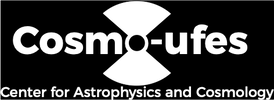Mini-courses, Seminars & Posters
Mini-course: CMB Theory (4 hours)
David Wands 1. Hot Big Bang
Mini-course: Inflationary Cosmology (4 hours) Jérôme Martin 1. Problems of the hot Big Bang scenario 2. The inflationary solution 3. Inflationary perturbations of quantum mechanical origin 4. Inflation and Planck Mini-course: Non-Gaussianity (4 hours) Christian Byrnes 1. Introduction to non-Gaussianity
2. The local model of non-Gaussianity
3. Concrete scenario and extensions of the simplest model
Mini-course: CMB Observation I (4 hours) Oleg Verkhodanov 1. Introduction
2. CMB analysis
3. Statistics of the CMB signal
4. Practicum "Study of power spectrum" (in the GLESP pixelization sheme)
Mini-course: CMB Observation II (4 hours) Rolando Dünner 1. Introduction
2. The Atacama Cosmology Telescope
3. From raw data to science
4. ACTpol: a new polarization camera for ACT
Seminar: The Physics of Baryons (1 hour) José de Freitas Pacheco Seminar: The CMB and our peculiar velocity (1 hour) Miguel Quartin Seminar: Warm Inflation, Cosmological Fluctuations and Constraints from Planck (1 hour) Rudnei Ramos Seminar: Brazilian participation in CMB measurements programs (1 hour) Thyrso Villela Communication: Equivalence between the Covariant and Bardeen Perturbation Formalism (1/2 hour) Nelson Pinto-Neto Communication: A path-integral approach to CMB (1/2 hour) Paulo Henrique Flose Reimberg Communication: Geometric scalar theory of gravity (1/2 hour) Júnior Diniz Toniato Communication: Dark degeneracy and interacting models (1/2 hour) Saulo Carneiro Posters:
|
Quick links
|
Mailing lists
Cosmo-ufes announcements / E-mails de notícias
Mailing list for members Slack for members: send an e-mail. AddressNúcleo Cosmo-ufes, CCE
Universidade Federal do Espírito Santo Av. Fernando Ferrari, 514 29075-910 - Vitória/ES - Brazil [email protected] |
Website administrators: DC. Rodrigues, J. Coelho, V. Marra & OF. Piattella. Contributions: several students and postdocs have helped to expand and maintain the content that can be found here, specially in the organization of the events section, where their corresponding names can be found. Disclamer: Cosmo-ufes is a center ("núcleo") from UFES; this website is maintained by Cosmo-ufes members.
